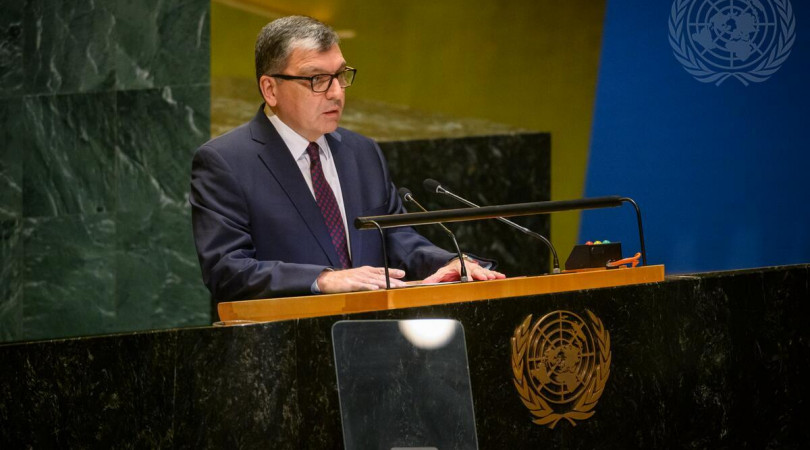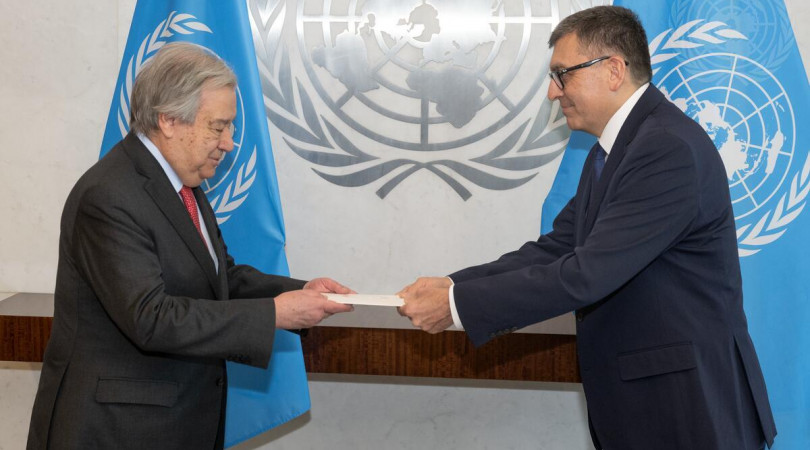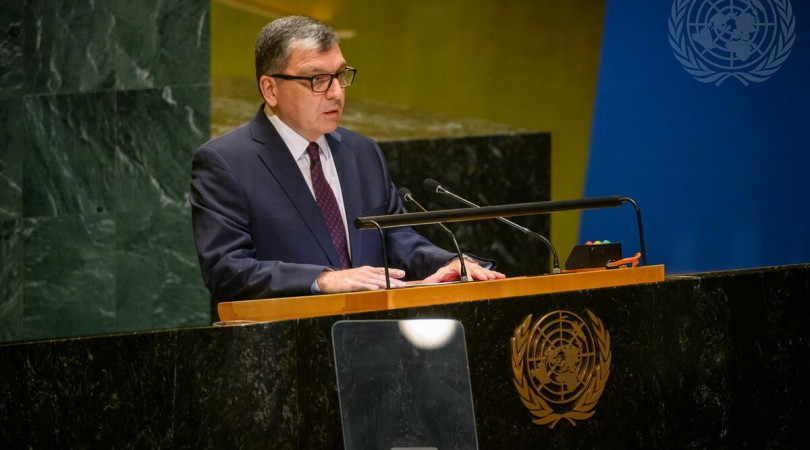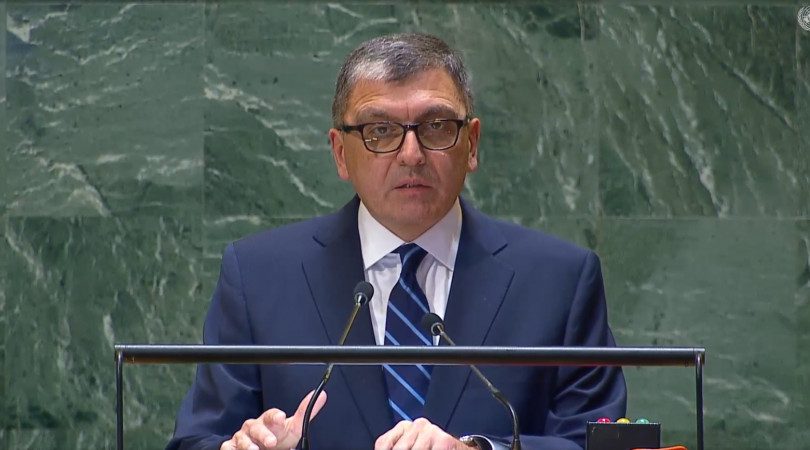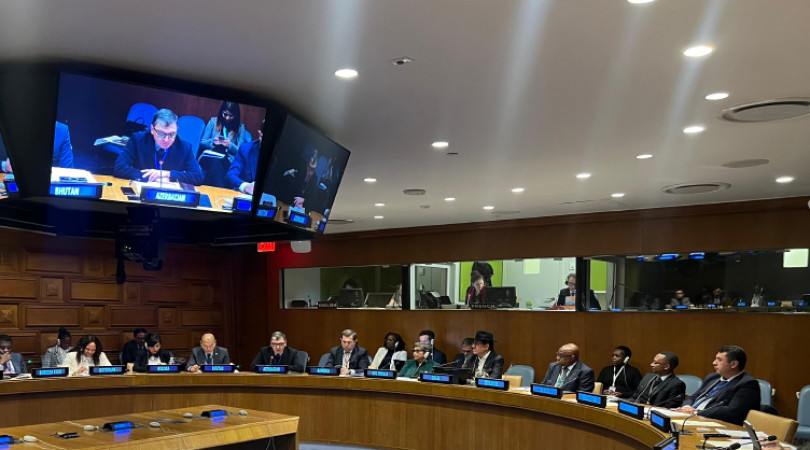Statement by H.E. Mr. Yashar Aliyev Permanent Representative of the Republic of Azerbaijan to the United Nations at the Security Council open debate, 22 May 2024
|
Azərbaycan Respublikasının |
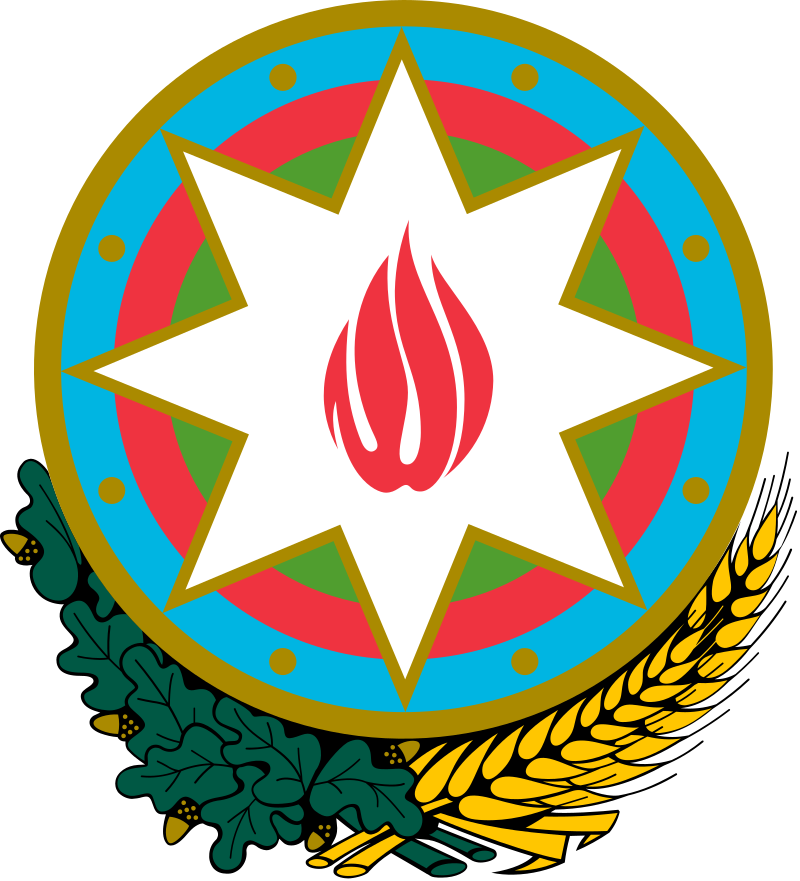 |
Permanent Mission |
|
633 Third Avenue, Suite 3210, New York, N.Y. 10017 |
||
|
Statement by H.E. Mr. Yashar Aliyev Permanent Representative of the Republic of Azerbaijan to the United Nations at the Security Council open debate on the theme “Protection of civilians in armed conflict; twenty-fifth anniversary of Security Council resolution 265 (1999)” 22 May 2024 Mr. President, at the outset, I would like to thank the delegation of Mozambique for having convened this important annual open debate. Mr. President, the developments in our region since the fall of 2020 culminated in the end of the 30-year occupation by Armenia of the territories of Azerbaijan and the restoration of the sovereignty and territorial integrity of my country, in full accordance with the Charter of the United Nations, international humanitarian and human rights law and the relevant resolutions adopted by this Council in 1993. The ongoing efforts to normalize relations between Azerbaijan and Armenia based on mutual respect for each other’s sovereignty and territorial integrity inspire hope for long-awaited sustainable and lasting peace and stability in the region. The Secretary-General and a number of international organizations and governments welcomed the recent progress achieved as a result of direct negotiations between the two countries. At the same time, the consequences of the war continue to impact the civilians. In the liberated territories, we have discovered ruined cities, destroyed and desecrated cultural monuments and a devastated environment. The conflict also turned Azerbaijan into one of the most heavily mine-contaminated countries in the world, with an estimated 1.5 million landmines and unknown number of explosive remnants of war, posing severe risks to civilians, hindering the safe return of internally displaced persons to their homes in the liberated territories and delaying the essential reconstruction and development works there. Despite the end of the conflict, Armenia has failed to share complete and accurate information about the locations of the minefields it has deliberately laid in civilian areas in Azerbaijan. Yesterday, on the day of this open debate, another civilian in my country was killed by a landmine, bringing the number of post-conflict mine victims in Azerbaijan to 360, of whom 68 lost their lives and 292 suffered horrific injuries. Half of them are civilians, including children and women. In total, over the past 30 years, the number of mine victims in Azerbaijan has reached 3,439. The scale and gravity of the landmine threat in Azerbaijan necessitate urgent, continued and adequate international support to its demining efforts. The need to clarify the fate and whereabouts of some 4,000 missing Azerbaijani nationals is another pressing humanitarian issue. International humanitarian law imposes specific obligations with regard to the search for missing persons and the treatment of the dead, including by recovering and returning human remains and identifying, mapping and preserving mass graves and other burial sites. Mr. President, States are under the obligation not only to prevent, but also to punish the most serious crimes. This obligation has been repeatedly reaffirmed by the Security Council. Thus, in its resolution 1265 (1999), the twenty-fifth anniversary of which we mark this year, the Council emphasized the responsibility of States to end impunity and prosecute those responsible for such crimes. In a similar vein, in his latest report on the protection of civilians in armed conflict (S/2024/385), the Secretary-General underlined that States should ensure that commitments to strengthen protection and investigate violations are matched by practical and effective measures. Azerbaijan has taken concrete steps to investigate and prosecute mass atrocities committed against its civilians and other protected persons during the conflict, in full accordance with its national legislation and international obligations. However, most of the perpetrators, having found a safe haven in Armenia, including those responsible for the genocide against Azerbaijani civilians in the town of Khojaly in 1992, continue to enjoy impunity. The denial and ignorance of these crimes constitute a clear contempt for international law and justice. In conclusion, with regard to the statement made by the representative of Armenia at this open debate, it is critical, for further progress towards achieving lasting peace and stability in the region, that this country strictly abide by its international obligations and stop replicating its false narratives that are counterproductive for the normalization process. Thank you.
|
||

